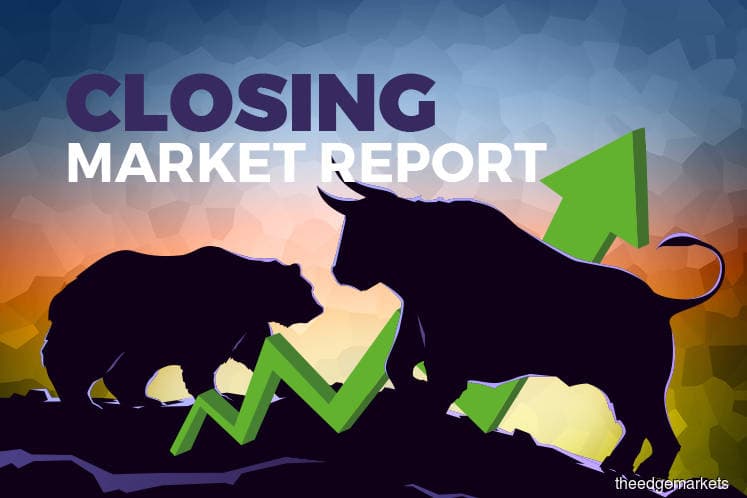
KUALA LUMPUR (July 2): The FBM KLCI closed up 21.85 points or 1.44% at 1,536.28 today after broad-based buying across Bursa Malaysia as world equity indices rose on hopes of a vaccine for Covid-19.
Across Bursa Malaysia, 5.9 billion shares were traded for RM4.03 billion. There were 701 gainers and 334 decliners.
Leading the KLCI, in percentage terms, was Petronas Chemicals Group Bhd after its share price closed up 30 sen or 4.8% at RM6.55, followed by Genting Malaysia Bhd and Genting Bhd.
Genting Malaysia was up 10 sen or 3.98% at RM2.61 while Genting Bhd closed 13 sen or 3.19% higher at RM4.21.
Globally, it was reported that Asian stocks hovered near four-month highs on Thursday on hopes of a vaccine for Covid-19 while copper prices jumped to a more than six-month peak on a better global outlook and supply fears in top producer Chile.
It was reported that all eyes are on US employment data, due later in the day, which are expected to offer further cues into how the world's largest economy is coping with a rise in coronavirus cases in several States.
"In a sign the positive sentiment will extend elsewhere, E-minis for S&P 500 rose 0.3% while futures for Euro Stoxx 50 rose 0.8% and those for Germany's DAX climbed 0.8%. London's FTSE futures added 0.6%. Risk sentiment was whetted by a Covid-19 vaccine from Pfizer and Germany's BioNTech, which was found to be well tolerated in early-stage human trials," Reuters reported.
In Malaysia, analysts are mindful of the KLCI's V-shape recovery's sustainability due to factors including the rising number of global Covid-19 cases and Malaysia's political uncertainty.
"Although the KLCI has staged an unprecedented V-shaped recovery, a pullback could ensue, triggered by rising Covid-19 count globally, souring US-China relations, domestic political uncertainty and deteriorating second-quarter corporate results," Hong Leong Investment Bank Research analysts Jeremy Goh, Felicia Ling and Goh Khing-Mae wrote in a note today.
"Still, the pullback shouldn’t be as severe (unlike 1Q20) as liquidity factors (rejuvenated retail participation and the US Federal Reserve’s 'unlimited QE' arsenal) would help cushion it," they said.
QE refers to quantitative easing, a scheme undertaken by Central Banks to increase money supply to support economic growth.